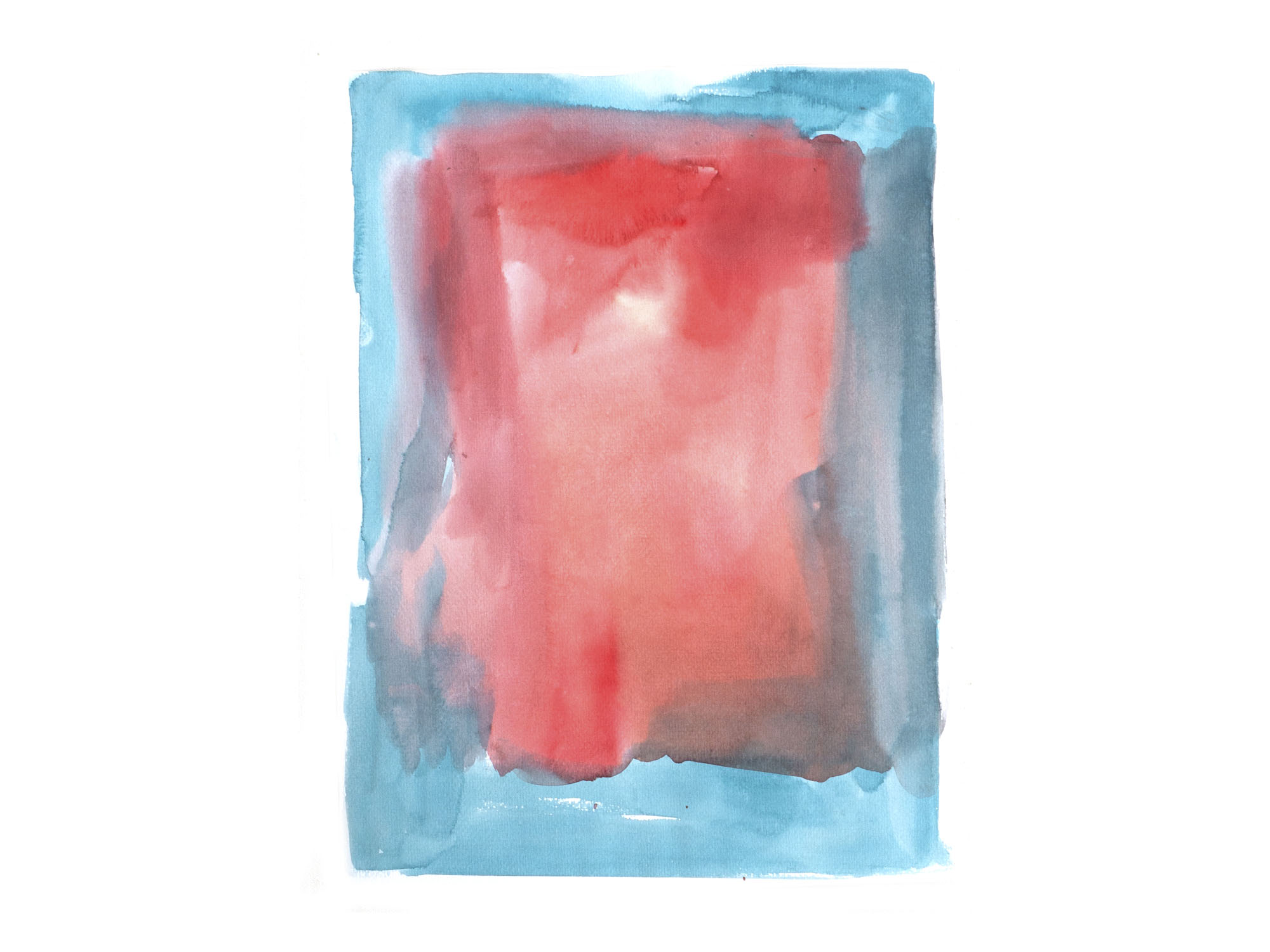“Dreaming” is the bridge between sleeping and waking, a magical place full of colour. We are not attached, we do not cling, and yet we shape a world.
When my father died, I stopped dreaming. The night became my dreamless shelter where I could finally escape all earthly pain. During the day, I felt like I was trapped in a Michael Ende novel. Momo took me by the hand every morning and led me through the first few weeks. I stayed inwardly removed from everything that was happening around me, as if I was enveloped in a great cloud of cotton wool. The stream of time in which my fellow human beings moved flowed over me, slower than for them, more viscous. I stood next to my life in disbelief—always prepared for the possibility that it could happen again, that something unforeseen would strike and pull the rug out from under my feet. I wouldn’t have been surprised. I had previously only known such intensity in my dream world. Only my nights remained comfortingly black.
But then he came. My father came in the night to say goodbye. Three weeks after his departure, I met him as he had always been: ageless, tall, smiling, and warm. The man of my childhood. In the months between the accident and his death, he had become thinner, delicate, and permeable, and I, helpless in comparison. In the nighttime encounter, I felt him full of strength and radiance, holding me. I have carried this moment within me as a truthful image ever since. During these days, Momo also took leave of me again. And with her departure, time and space normalised. The dreams also returned. I was back in the dream, back among the mortals who had forgotten that they would die.
Mystical Venomous Bunnies
The births of my three children brought very specific, sometimes bizarre dream worlds into my life, with their very own laws and characters. As a four-year-old, my first son spoke of a piano player waiting at the border to dreamland in the evening. He was able to tell this dexterous musician which landscape or story he wanted to travel to that night. The pianist then struck the appropriate keys and notes—like travel coordinates—and the resulting colourful song carried my child away into the desired dream. (He then pretty quickly thereafter demanded piano lessons.)
He calls this second home “Mysa”. And Mysa is a place full of wonders. Everything we know from the earth is upside down there; “only the angels are the right way up”. His two guardian angels also come from this Otherworld, one powerful and warlike, the other counselling and gentle—Karacho and Fidort. (I’m wondering whether it is ethically and spiritually acceptable to publish the real names of his guardian angels here. I think I’ll risk it!)
The “Reports from Mysa” marked the beginning of a journey for our then-growing family that continues to this day. The mystical realm of the eldest allowed the other two to develop and expand their worlds. For a while, our evening meals resembled ethnological travelogues. When we asked, for example, what the weather was like in their worlds and whether there was also climate change there, we received three completely different insights into the soul continents of our children. To be honest, we sometimes shamelessly exploit this immersion in daydreaming. On long walks, for example, when the grumbling increases, a question like, “Who is ruling Mysa again?” is usually enough to start a stream of stories that lets them forget the exertions of the walk.
With our middle daughter, it’s less about foreign worlds and more about a socially challenging constellation. Completely drawn in, we regularly hear about three creatures that are in her care: the so-called “venomous bunnies”. There are only three of their kind left in the world, and she is the only one who can tame them and is not harmed by their venom. Her adventures are less the stuff of legend and more about everyday miracles and situational comedy. For example, she had to smuggle the three venomous bunnies through airport security on a complicated journey with twenty suitcases. The tenor is usually similar: she repeatedly has to protect the people around her from the dangerous and capricious creatures—when they are afraid, they spit out venom over several metres—and conversely, of course, she must protect the bunnies from the overly curious humans. (A signature that reveals a lot about her inner life!)
Our youngest son, who is a true creature of will, has brought a third world with him. The name of his gang says it all: they are the “Bungabanga”, who invent things every day and solve all the world’s problems with strength and skill.
In his early years, he tended to listen to the stories of the older ones, but as he eagerly began to look forward to starting school, they became his favourite topic of conversation. The Bungabanga hold elections just like we do. Most of the time, however, the strongest and cleverest simply becomes king. Often, but not always, our son holds this office. The crown must be relinquished, however, if the gang has problems that others can solve better. The gang is divided into occupational groups. There are tree throwers, flying monkeys as a means of transport, or the legendary “redoubts”. The Bungabanga are mainly busy honing their respective professional skills. They choose their speciality from childhood. They primarily build tools, temples, treasure chambers, weapons, and traps—the latter in order to be able to hold their own in the disputes with the annoying neighbouring tribe of the “Bingis” (whom his sister developed). On the other hand, it is also about very worldly topics. Just today, we are taking a walk through the forests of the Rhön mountains, and as if sensing the current political debate in the air, he suddenly pipes up beside me: “Mum, do you know that the Bungabanga are broke now?” This is followed by wondrous explanations about the theft of the national treasure and which traps simply didn’t work.
It seems to me that his years of belonging to this gang, all its rituals and ways of life, give him an inner line of reference. Everything new that he encounters is aligned with this: “It’s the same with the Bungabanga!” or “It’s completely different with the Bungabanga!”
Dream Addict
I read. Books are my addiction. I vanish into them the way I vanished into role-playing games for days on end as a child. I often fall asleep, the book still in my hand, the light still on. I slip from my everyday self through the worlds of fairy tales and novels into sleep. As a mum of three (and recently also a dog boss), the exhaustion in the evening is often so great that sleep beckons me like a wellness oasis. But my inner wheel is still spinning so fast that I find it difficult to come to rest straight away. That’s why I read—it’s like a balloon that helps me to lift off. I can feel the light gust of air as I turn the pages, which calms me—the slow scanning of the letters, the lines that are always the same. Until one of the pages becomes the last, unfolding into a parachute that drops me just where I am supposed to land, to wake up in another world—or is it the same?
Translation Christian von Arnim
Image Untitled, Miriam Wahl, 2020













